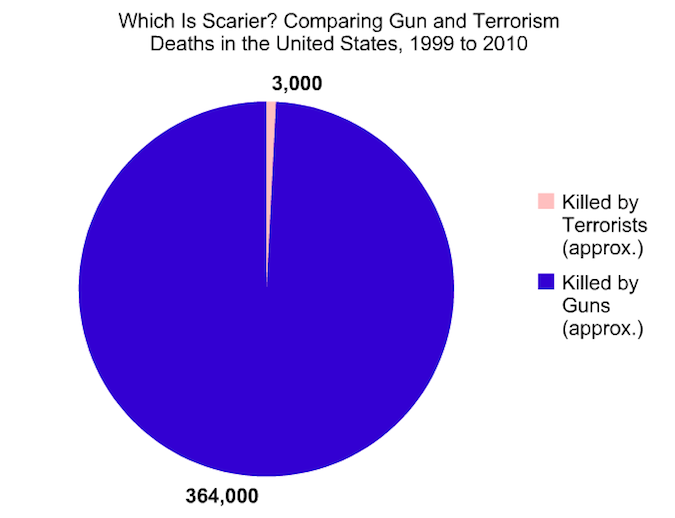When all else fails, the supposedly clinching argument of the National Security State is that infringements of our liberties is ABSOLUTELY ESSENTIAL to protect us from the awful prospect of terrorism. The same state, however, seems remarkably unconcerned about things that are much more dangerous than terrorism — as Conor Friedersdorf points out a in fine essay in The Atlantic.
In 2001, the year when America suffered an unprecedented terrorist attack — by far the biggest in its history — roughly 3,000 people died from terrorism in the U.S.
Let’s put that in context. That same year in the United States:
71,372 died of diabetes.
29,573 were killed by guns.
13,290 were killed in drunk driving accidents.
That’s what things looked like at the all-time peak for deaths by terrorism. Now let’s take a longer view. We’ll choose an interval that still includes the biggest terrorist attack in American history: 1999 to 2010.
Again, terrorists killed roughly 3,000 people in the United States. And in that interval,
roughly 360,000 were killed by guns (actually, the figure the CDC gives is 364,483 — in other words, by rounding, I just elided more gun deaths than there were total terrorism deaths).
roughly 150,000 were killed in drunk-driving accidents.

